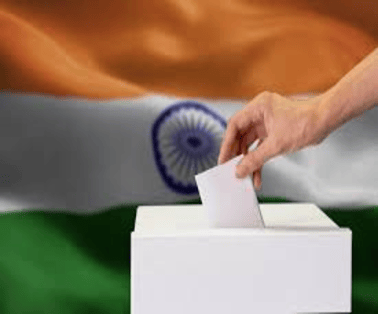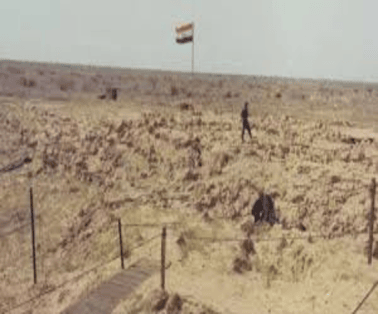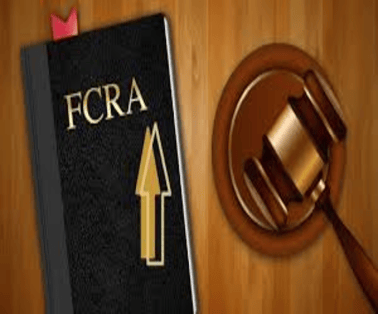India’s electoral framework, governed by the Representation of the People Act, 1951 (RPA 1951), ensures that every eligible voter can exercise their right to vote, even if they are unable to be physically present at the polling station on voting day. This article explains the key provisions under the RPA 1951 that allow certain categories of voters to cast their votes through alternative methods such as postal ballots, proxy voting, and assisted voting.
General Voting Rules under RPA 1951
- The general rules established for voting under various sections of the Representation of the People Act, 1951 (RPA) state that all voters must vote in person, at their designated polling station, on the date and hours fixed for the poll and using EVMs.
- However, special exceptions are made for certain categories of voters to ensure that everyone gets to exercise their franchise.
Postal Ballots under Section 60 of RPA 1951
- ‘Postal ballot’ allows voters who cannot be physically present in polling stations to vote remotely, as specified in Section 60 of the RPA.
- Those eligible for postal voting must submit a formal application to the Returning Officer within a set timeframe.
- Service voters and electors under Preventive Detention automatically receive postal ballots.
- Once issued, these voters cannot vote in person.
- Their name on the electoral roll will be marked with ‘PB’, except for Service voters, who have a separate part of the electoral roll in each constituency.
- Special voters, service voters, and the electors subjected to preventive detention can return their PBs by post.
- Rule 18A, introduced in 2022, mandates voters on election duty to vote at designated Facilitation Centers using postal ballots.
- Similarly, an appropriate venue and room for the Postal Voting Centre (PVC) are identified to facilitate voting by absent voters in the Essential Services (AVES) category.
Differences Between Postal Ballots and Regular Voting
This method differs from normal voting in three ways.
- Polling takes place outside the polling station;
- It takes place without EVMs (EDC voters are an exception — more on them later);
- Polling takes place before the designated poll date in the constituency.
Categories Eligible for Postal Ballot under RPA 1951
As per Rule 18 of The Conduct of Election Rules, 1961, the following classes of persons are entitled to vote by postal ballot:
- Special voters: Individuals holding declared office under Section 20(4) of RPA, including the President, Vice President, Governors, Cabinet Ministers, other high-ranking dignitaries, etc. and their spouses.
- Service voters: Members of the Indian armed forces, paramilitary forces, an armed state police member serving outside their state, or a government employee stationed abroad and their spouses residing with them.
- Voters on election duty: This includes all Commission’s observers, presiding officers, polling officers and agents, police personnel, and public servants assigned official tasks on polling day. Private individuals and non-government staff, such as videographers, control room staff, drivers, conductors, cleaners, helpline staff, etc., are also covered.
- Electors subjected to preventive detention
- Absentee voters under Section 60 (c) of RPA, 1951: : In 2019, the Election Commission established the ‘Absentee Voters’ category encompassing senior citizens aged 85+, persons with disabilities with at least 40% disability, Covid-19 suspect or affected individuals, and essential services workers such as railways, telecom, electricity, health, traffic, aviation, fire services, and authorised media personnel.
Home Voting for Absentee Voters
- For absentee voters over 85 (AVSC), PwD (AVPD) and AVCO, Booth Level Officers (BLOs) deliver Form 12D and compulsorily obtain acknowledgements from them.
- For home voting, teams consisting of two poll officers, a police security officer, a micro-observer, and a videographer are formed. Voters are notified of visits via SMS, post, or BLO; if a voter is unavailable after two attempts, no further action is taken.
- Candidates, their agents, and media personnel are informed of the schedule and can observe the process. All visits are completed the day before the polls.
Proxy Voting under RPA 1951
- Service voters in the Armed and paramilitary forces can vote either by proxy or postal ballot.
- Those who choose the proxy voting method are known as ‘Classified Service Voters’ (CSVs).
- They must appoint a local resident as their proxy. The proxy votes at the designated polling station and indelible ink is applied to their left middle finger to indicate proxy voting.
Assisted Voting for Persons with Disabilities
- Suppose an elector is unable to vote due to blindness or other disability. In that case, the Presiding Officer may allow them to bring a companion over 18 into the voting booth to record a vote on their behalf.
- The indelible ink is applied to the companion’s right index finger in such cases.
Voting at Different Polling Centres
- Suppose a person on election duty is deployed in the same constituency where they are enrolled as a voter.
- In that case, the Returning Officer can issue the applicant an Election Duty Certificate (EDC).
- This entitles them to vote at a polling station through EVM where they are on duty, which is not the station where they are enrolled as a voter since they are deputed through randomisation.
- However, if they are on duty in another constituency, they are entitled only to a postal ballot
Conclusion
The Representation of the People Act, 1951 (RPA 1951) incorporates multiple provisions such as postal ballots, proxy, assisted, and home voting to ensure inclusive and accessible voting rights for all eligible Indian citizens. These measures safeguard democratic participation even when voters face physical or official constraints.
To Download Monthly Current Affairs PDF Click here
Click here to get a free demo
Discover all about CLAT Exam



